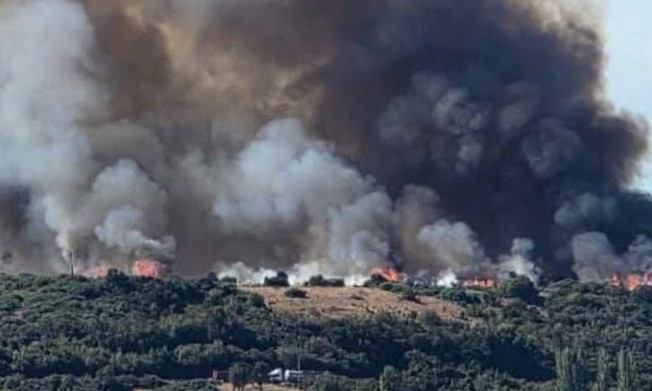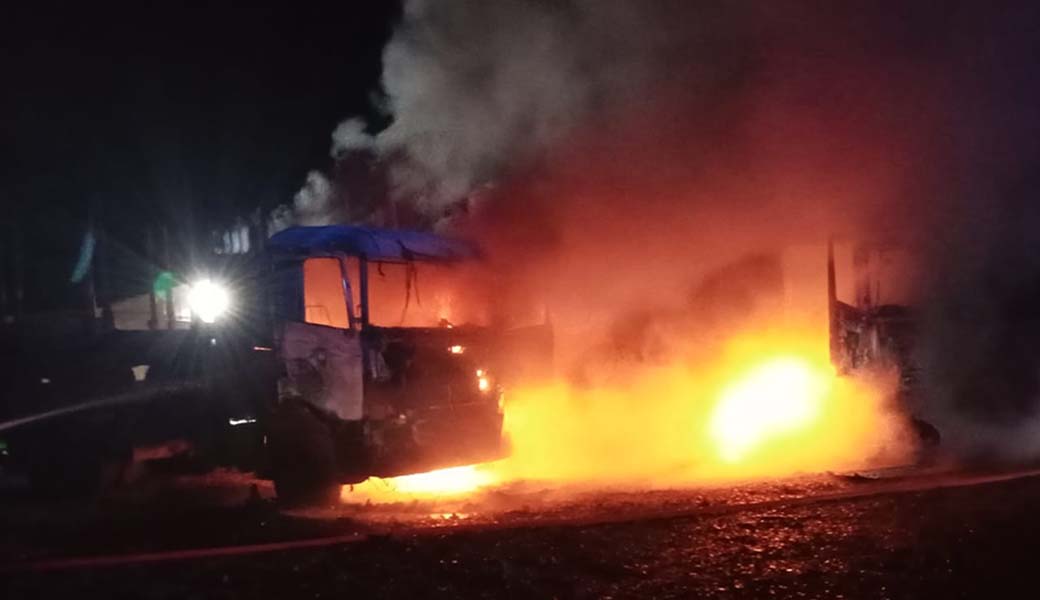After two years of intense deliberations, thePresidential Commission for Peace and Understandingdelivered its final report toPresident Gabriel Boricon Tuesday, marking a milestone in the State's efforts to address the historical conflict with the Mapuche people in the Southern Macrozone.
During the handover ceremony held at La Moneda Palace, the President expressed his gratitude and praised the work of the commissioners. "I receive this document with great hope for the results of the Presidential Commission for Peace and Understanding, with pride and gratitude for the work done," Boric stated, adding that he would review the conclusions in detail during his upcoming trip to Southeast Asia.
The document, prepared by a commission composed of diverse social and political actors, as well as representatives of indigenous peoples, proposes a profound transformation in state policy toward the Mapuche people, moving beyond the current model of land restitution as the sole form of reparation.
However, the presentation of the report was not without controversy.Sebastián Naveillán, president of the Malleco Farmers Association and former commissioner,voted againstthe final text, marking the sole dissent within the group. This decision sparked divided reactions, reflecting the lingering tensions surrounding the conflict.
One of the report's key points was highlighted by former Foreign Minister and commission member,Alfredo Moreno, who emphasized the urgency of structural changes. "It is a reality we can no longer ignore as a country. There are Mapuche communities living in poverty, isolated, waiting decades for unfulfilled promises. A wait that, under the current system, could stretch another 100 years," he noted.
Moreno also addressed the impact of violence in the region. "Since 1997, terrorism and violent acts have claimed innocent lives. Police officers and civilians have died, families have lost their homes. Fear has become routine in places where there should be unity."
According to the report, the restitution of over 300,000 hectares has failed to reverse the situation in the most affected areas, such as La Araucanía and Arauco, which remain among the most neglected in the country. "The current system is not only inadequate but also a factor perpetuating the conflict," Moreno asserted.
Among the report's main proposals istransitioning toward a comprehensive development model, combining cultural rights, effective participation, territorial autonomy, and sustainable productive projects. "We propose moving from a system that fosters division to one that builds unity; from restrictions that condemn to poverty to freedoms that enable progress. We choose change, peace, and faith in Chile," Moreno concluded.
President Gabriel Boric pledged to study the report and announce next steps in the coming days. Expectations now rest on how the Executive Branch will translate these proposals into concrete actions to advance toward a lasting resolution of the conflict.
Recommendations from the Final Report of the Commission for Peace and Understanding
The final report of theCommission for Peace and Understandingpresents 21 recommendations organized as follows:
Justice and recognition
- Constitutional recognition
- Recognition of Mapuche self-governance structures
- Cultural and linguistic revitalization
- Political representation
- New high-ranking body to coordinate indigenous policy
- Indigenous consultation and participation
Reparation for victims
- Law for victim reparations
- Body for reparation to victims of violence
- Mechanisms for reparation to victims of violence
Land
- Foundations of the land agreement
- Institutional transition
- Reparation Agency
- Modifications to contracts on indigenous lands
- Forest lands
- Forms of reparation by the Agency
- Criteria for land reparations
- Competence of the Arbitration Tribunal
Territorial development
- Territorial and economic development in regions
Guarantees for implementation
- Support for the New Land Reparation System
- Access to financing
- Implementation of the recommendations







Comments (0)
No hay comentarios aún. ¡Sé el primero en comentar!
Deja un comentario